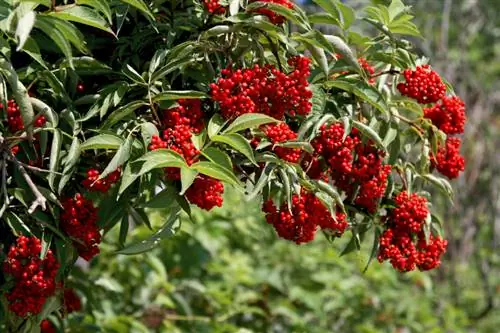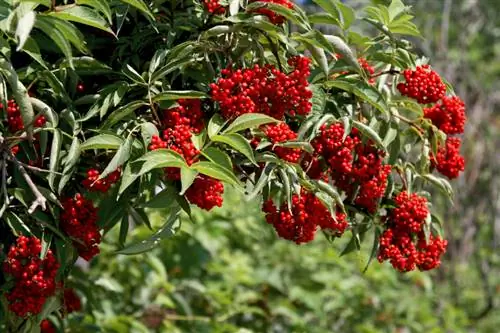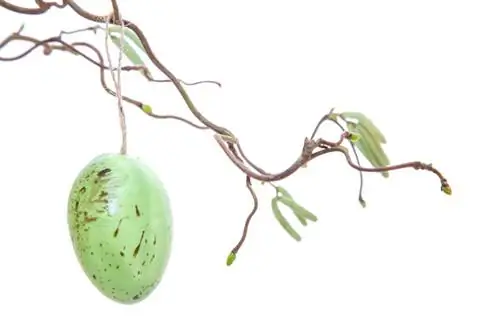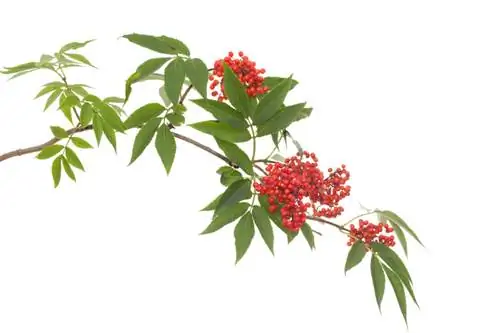- Author admin leonars@hobbygardeners.com.
- Public 2023-12-16 16:46.
- Last modified 2025-06-01 06:02.
The hobby gardener should refrain from snacking on elderberries during the harvest, because the fruits are anything but wholesome raw. You can find out under what conditions they are transformed into he althy food here.

Are elderberries poisonous and how can they be defused?
Are elderberries poisonous? Yes, raw elderberries contain the toxic glycoside sambunigrin, which releases hydrogen cyanide and can cause stomach pain, nausea and vomiting. Heating to at least 76.3 degrees Celsius for 20 minutes will decompose the poison and allow the berries to be consumed.
Sambunigrin - poison releases hydrogen cyanide
The glycoside sambunigrin is contained in all parts of the plant of an elderberry. Similar to the deadly nightshade poison, it releases hydrogen cyanide. Anyone who eats elderberries raw often suffers from stomach pain, nausea and vomiting.
Remedy through appropriate heating
It is a well-known fact that boiled elderberries make a delicious jam or refreshing syrup. The toxic content is lost on the way there. As was found in experiments, sambunigrin decomposes at a temperature of exactly 76.3 degrees Celsius. Here's how you should treat the fruit to be on the safe side:
- only harvest fully ripe berries
- pick individual unripe fruits from the umbels
- carefully remove all stems
- cook for at least 20 minutes at more than 80 degrees Celsius
Freezing does not eliminate the toxicity of elderberries. There is nothing wrong with storing the harvest in the freezer for some time. Before consumption, it should still be heated according to the procedure described.
Destone red elderberries
Raw red elderberries are poisonous as long as they still contain their seeds. Even the longest cooking doesn't change that. If you would like to integrate the red fruits into your diet, you will not be able to avoid the tedious task of removing the stones.
Tips & Tricks
As a relic from ancient times, the old German name 'Fliederbeere' for elderberries has remained in common usage to this day. Contrary to popular belief, from a botanical perspective, an elderberry and a lilac have nothing in common.






